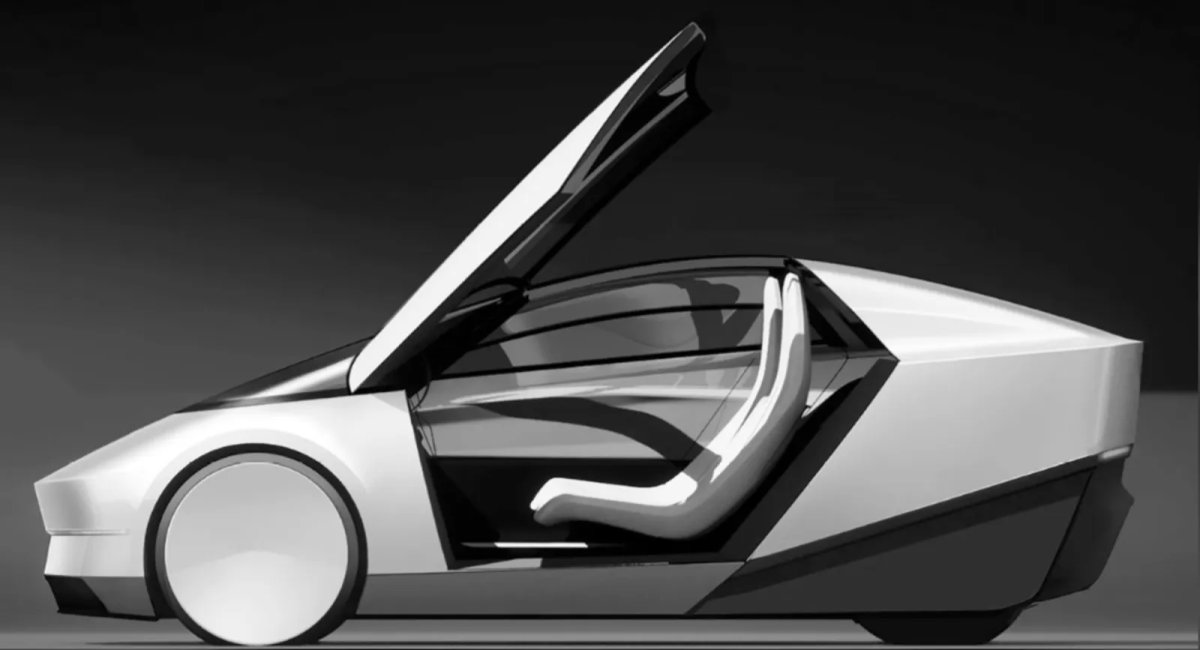 Tesla Robotaxi Concept" />
Tesla Robotaxi Concept" />
The Future of Clean Rides
Tesla is once again at the forefront of innovation, this time through a recently filed patent that unveils an elaborate sanitization system designed for its upcoming Robotaxi fleet. This futuristic system aims to sanitize enclosed spaces automatically, a move set to revolutionize not just autonomous vehicles but all shared transportation services. But how does it work, and what makes it a potential game-changer?
How It Works
The system starts by meticulously observing and analyzing the conditions within the enclosed space. Equipped with various sensors, it measures ambient temperature, humidity, the presence of pathogens, and the cleanliness of the air. Based on these conditions, the system generates a tailor-made sanitization plan.
What's particularly groundbreaking is that this isn't exclusive to the Robotaxi itself but is applicable to all Tesla vehicles. The sanitization routine can adapt to various circumstances like weather conditions and vehicle usage history, making it versatile and highly efficient.
Execution: A Combination of High-Tech Solutions
Once the sanitization plan is in place, the system deploys multiple cleaning methods. These include HVAC systems, UV lighting, steam generators, and more. For instance, the system can blow warm air toward high-touch surfaces such as the steering wheel and central display, making sure these areas are sanitized. UV light can also be used to disinfect seats and seatbelts.
Additionally, unique methods like tilting the vehicle's central display to reflect sanitizing UV light around the cabin are employed. Tesla's creativity in utilizing existing elements within the vehicle's architecture demonstrates a thorough understanding of the intricacies involved in vehicle sanitization.
Collaborative Cleaning: Beyond the Car
The system doesn't stop with in-vehicle capabilities. Tesla envisions external service robots, possibly their own Optimus robots, to assist in sanitizing both the interior and exterior of the Robotaxi. This feature indicates Tesla's intention to maintain a high level of cleanliness even in challenging conditions.
Moreover, the Full Self-Driving system can adjust the vehicle’s orientation, allowing sunlight to sterilize certain parts of the cabin naturally. Such a holistic approach ensures that the sanitization system is always working at peak efficiency, regardless of the surrounding environment.
Timing and Efficiency
Time is of the essence when it comes to shared vehicles that need quick turnovers between passengers. Tesla's system begins the sanitization process immediately after a passenger exits, reducing downtime. If a deeper clean is required, the system can divert the vehicle to a specialized cleaning location while another vehicle is dispatched to pick up the waiting passenger.
This seamless integration of sanitization into the workflow highlights the practicality and scalability of Tesla’s approach, making it suitable for large fleets operating in busy urban environments.
Combating Pathogens: The Science Behind It
Tesla’s patent doesn’t just focus on visible cleanliness but goes a step further by addressing airborne pathogens like SARS-CoV-2. The system is designed to alter ambient conditions within the vehicle to levels that are inhospitable to pathogens, thus minimizing the risk of disease transmission between passengers.
This could be a significant selling point, particularly in a post-pandemic world where public health is a major concern. With a focus on both comfort and safety, Tesla’s sanitization system sets a new standard for autonomous vehicle hygiene.
Looking Ahead: What to Expect
The unveiling of Tesla's Robotaxi on August 8 is bound to shed more light on this innovative sanitization system. As Tesla continues to push the envelope in autonomous driving, their focus on hygiene and safety could give them a competitive edge in the burgeoning Robotaxi market. We also expect to hear more about how Tesla plans to charge these Robotaxis, adding another layer to the ecosystem they are building.
With features that transcend basic cleaning, Tesla's sanitization system promises to make autonomous rides not just a feat of technological marvel but also a paragon of cleanliness and safety. Stay tuned for more updates as Tesla’s vision for a cleaner, smarter transportation future materializes.
